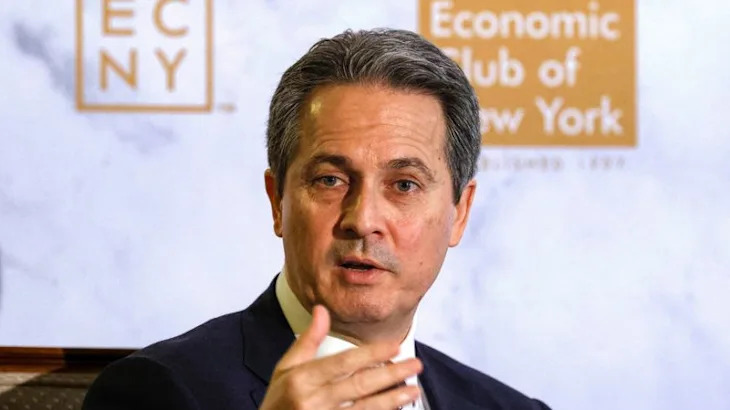(Reuters) -St. Louis Federal Reserve President Alberto Musalem said on Friday he's closely watching whether a rise in short-term inflation expectations seeps into longer-term expectations, a development that could make fighting inflation a much harder job and reduce the U.S. central bank's flexibility to respond to weakness in the labor market.
Noting high uncertainty over the effects and timing of tariffs and other new policies and the "distinct possibility" that inflation reaccelerates even as the labor market softens, Musalem said Fed policy is well positioned and should remain vigilant.
"I would be wary of assuming the impact of high tariffs on inflation would be only brief or limited," Musalem told the Arkansas Bankers Association. "I consider it appropriate to 'lean against' second-round effects with monetary policy, although discerning between underlying inflation and the direct, indirect and second-round effects of tariffs is likely to be challenging in real time."
There's been little progress on inflation since mid-2024 and risks have increased that it will move up in the short-term as tariffs come in, Musalem said. And while the "textbook" approach to tariffs is to treat their effect as a one-time event a central bank ought to ignore, that's a risk when inflation is already elevated, he said.
Market data and most surveys show long-term inflation expectations are anchored, with the University of Michigan's survey showing a rise being a "notable" exception, he said. The latest read from that survey, released before he spoke, showed consumers see inflation running at 4.4% in five years, the highest level for longer-term inflation expectations in that survey since 1991.
"If longer-term inflation expectations are anchored, a monetary policy approach that is responsive to both employment and price stability concerns is feasible," he said. "But if the public begins to expect inflation will remain high over the long term, the job of restoring price stability and maximum employment would be much more difficult."


